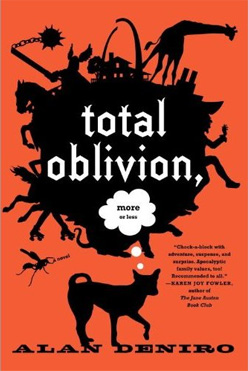Creationist Pretzeling
More hypothetizing is stranger than science fiction. What if the speed of light is slowing down? It surely then would suggest “that scientific validation exists for a (gasp) literal interpretation of the seminal passages of Genesis.”





This is an incredible story. This is truly universe-shaking. It has nothing to do with time-wasters in the fundamentalist hue.
This is true science shaking things out. Instead of calling the researchers question into character or quoting dusty tomes, they devised experiments to prove them wrong, then they changed their minds. True scientists to the rescue.
Incidentally, a faster speed of light would make interstellar travel more feasible among other things as it is the big speed limit to space travel. There are many, many more implications. Certainly a short story or 10 are in the making here.
As to the short story decline quote. If I’m the last reader of short stories and you are the last writer, I will not be an less happy than I am right now.
peace,
Fred
Nope, sorry. The slower speed of light is a well-known argument of the “intelligent design” folks. In this case, they’re using well-known crackpots to back up their pre-determined favorite answer. It’s bad science at best, outright academic dishonesty at worst.
Bill Tifft is an emeritus professor at the U of A, who has been talking about quantized redshifts and steady-state universes and quasars being ejected from the centers of galaxies for decades. He’s a well-known crackpot, part of a group of co-crackpots which include Chip Arp and the Burbidges. Once upon a couple decades ago, they were actually well-regarded, cutting-edge researchers. They’re the last hold-outs of the original steady-state universe theory.
No, it’s 13.7 billion years, omega_matter = 0.27, omega_lambda = 0.73, Hubble’s “constant” = 72 km/s/Mpc locally. The supernovae and cosmic microwave background experiments have backed it into a pretty tight corner at this point.
The real news is Bekenstein’s tensor-vector-whatever revision to general relativity. Three decades later, “dark matter” might finally turn out to be a breakdown at the edges of Einstein’s theory after all.
Sorry to barge in twice in a row…
No barging at all, Jackie…good stuff all around.
Er, having said all that, I now feel the need to qualify… Bekenstein’s theory is a purely phenomenological correct to general relativity. It’s not motivated by anything deeply physical, except to provide a relativistic extension to Modified Newtonian Dynamics — which is also a purely phenomenological theory, designed only to provide an empirical description of gravity as an alternative to dark matter.
So we’re not talking Theory of Everything here: those go from the bottom up, starting with quantum mechanics and eventually (hopefully? just a couple Higg’s bosons, please?) ending up with gravity. Tensor-vector-scalar represents folks on the astrophysical end getting fed up after 30 years, and trying to do it themselves from the top down.
Most theorists still maintain that the right way to do it is to find that goddamn Theory of Everything.
Not that Wikipedia is exactly Dr. Science (“He’s not a real doctor!”), but they’ve got some interesting discussion, not particularly tainted by creationism, of variable speed of light theories, what it would mean (or not mean) for the speed of light to change, and what all else would have to change with it.